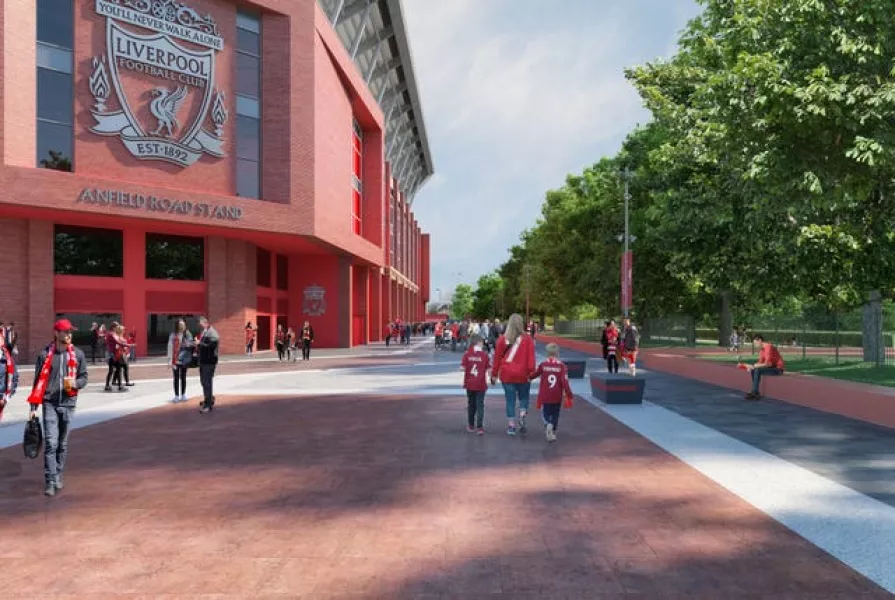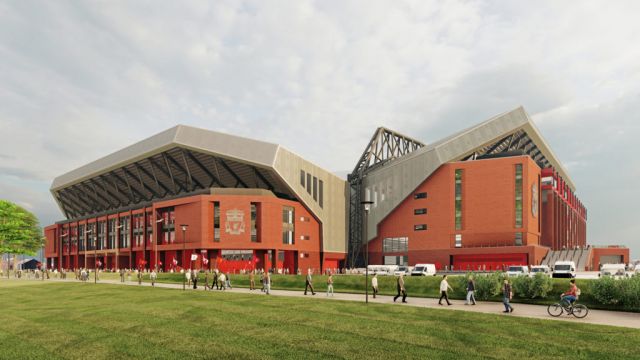Liverpool will formally start work next week on a project to increase the capacity of their Anfield home to more than 61,000.
The expansion, which was granted planning permission in June and has been undergoing enabling works throughout the off-season, is looking to add 7,000 seats to the Anfield Road Stand and is expected to be completed in time for the 2023-24 campaign.
The club said on Wednesday morning that work “will begin in earnest with an official ground-breaking ceremony planned for next week”.
We can confirm that plans for the proposed expansion of the Anfield Road Stand will move forward 🏟️
— Liverpool FC (@LFC) September 22, 2021
Advertisement
Jurgen Klopp’s men will continue to play at the stadium while the building work, which will involve a re-route of Anfield Road itself, takes place.
Managing director Andy Hughes told the Reds’ website: “We have been clear from the beginning that in order for this expansion to go ahead we needed the co-operation of local residents and the community, to successfully navigate the complex planning landscape, and to ensure the project is financially viable.
“We needed certainty for this project to progress and are now in a position to be able to move forward. We began this journey in 2014 and are grateful to everyone for the contributions they have made to bring the project to this stage.”
The newly designed Anfield Road Stand will see the lower tier retained and refurbished, with a new upper tier built above.

Buckingham Group Contracting Limited has been appointed principal contractor and will work closely with the Red Neighbours initiative and also local employment groups having entered into a commitment to offer work experience, apprenticeships, graduate placements and jobs to local people.
The expanded structure, which will be similar in design to the Main Stand and will include improved concourses and sports-bar lounge hospitality facilities, is expected to support around 400 matchday roles in addition to the 2,200 which currently exist.
It will also feature additional pedestrian routes into Stanley Park and “include historical design references”.







